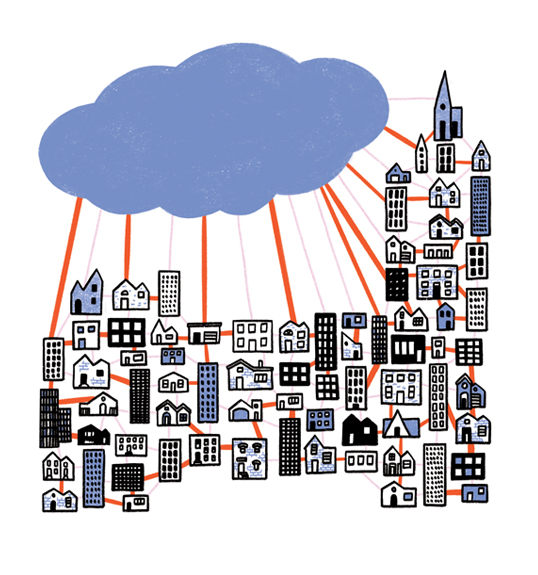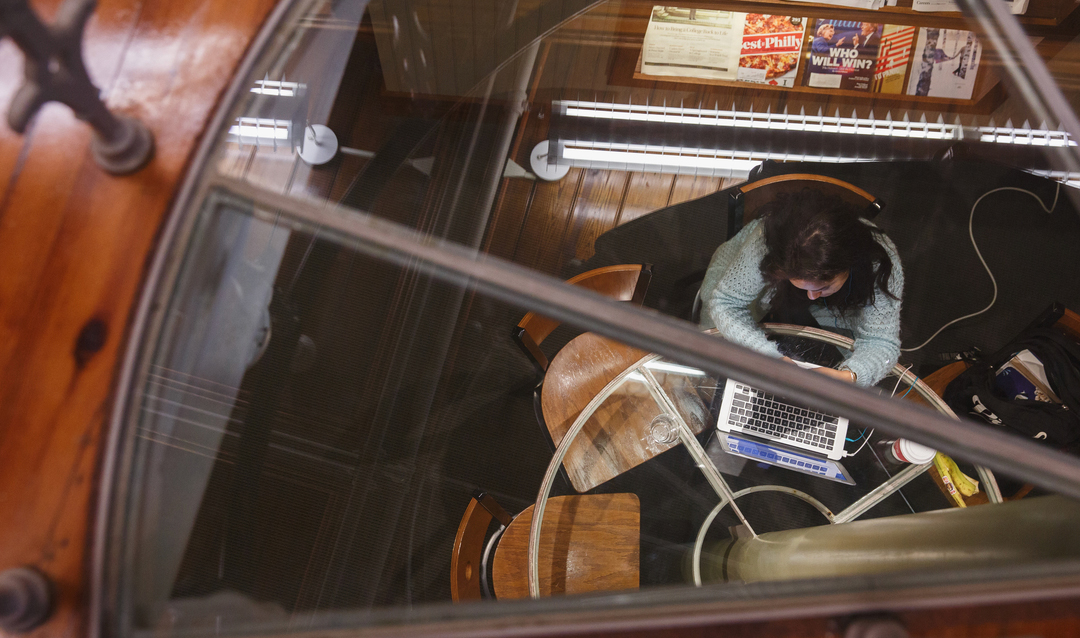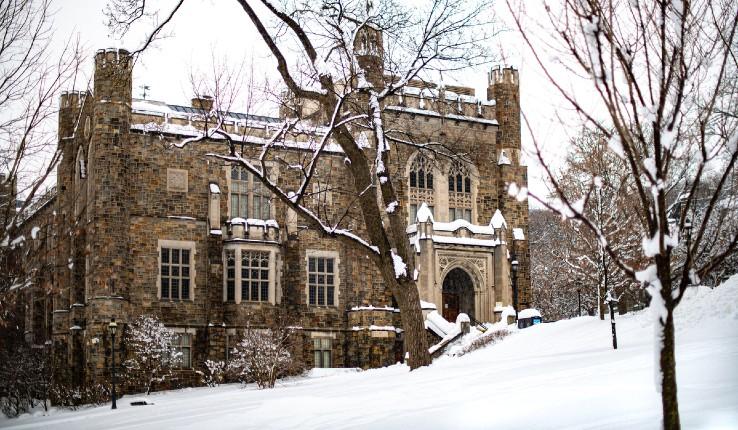With concerns growing over the threat of COVID-19, Lehigh faculty and staff had to move more than 1,000 classes from four colleges to online—in just four days. President John D. Simon’s announcement March 12 that Lehigh would shift to online learning for the rest of the spring semester affected courses ranging from engineering to stage design.
How Lehigh Went Remote—In Four Days
Lehigh’s Library and Technology Services (LTS) and its Center for Innovation in Teaching and Learning (CITL) were thrust center stage.

Illustration: Paige Vickers
Lehigh’s Library and Technology Services (LTS) and its Center for Innovation in Teaching and Learning (CITL) were thrust center stage. It was a moment LTS Vice Provost Greg Reihman and his staff had anticipated. In reality, they had been preparing for years.
For one, Lehigh already had a campus-wide Zoom license and a suite of robust technology tools to address the ongoing need among faculty and staff for more remote operations. “So that planning put us in a good position,” Reihman said.
To help Lehigh faculty and teaching assistants make the rapid transition to online, LTS hosted workshops, first in person, then via Zoom video-conferencing and recorded sessions. It also rolled out online resources for faculty, students and staff. As LTS technology teams bolstered infrastructure, software licensing and information security, the LTS Help Desk and client services teams fielded an expected uptick in help requests.
To gauge initial readiness, Reihman surveyed faculty members about their confidence level in teaching online. About 40 percent of faculty said they felt confident, while 35 percent were in the midrange level. Reihman said 25 percent reported low confidence.

Greg Reihman
By the end of the first week of remote learning, faculty confidence had surged to 68 percent, according to a subsequent survey. Another 30 percent rose to midrange, meaning they were okay with the basics but still looking for some help with more advanced approaches. Only 2 percent noted that they could still use help with the basics.Reihman noted the “remarkable transformation” among faculty after one week. “With some guidance, a lot of hard work, and some experience,” Reihman said, “you realize you can do a lot more than you thought you could do online, that you really can connect with your students, you really can instruct and help and guide and have good discussions.”
Reihman, who also teaches a course on Philosophy & Technology, said his students had reported a broad range of experiences with their online courses. Some said, this is going amazingly well. Others said courses got off to a rocky start but that faculty and students gradually figured things out. Some students missed the pattern of going to class and the social experiences. A subset faced additional challenges—they didn’t have the technology to connect to classes online or were back home in a different time zone, which threw off their class times.
LTS worked with the Dean of Students and the Office of Diversity, Inclusion and Equity to identify and meet students’ technology needs. Some faculty members scheduled asynchronous work, so that students could log into recorded classes at more convenient times.
Now, seizing on what was learned, Lehigh’s academic leadership has pushed forward on several fronts to prepare for the continuation of remote teaching, in part or in full, as the COVID-19 threat persists. The goal, Reihman said, will be clear: to deliver a dynamic and interactive learning environment and to demonstrate leadership in using innovative technology to deliver the highest quality education.
“All of our efforts now are about raising the floor and raising the ceiling,” he said. “A key thing for us as a baseline is to step it up in regard to a couple of simple things that can be fixed, because some faculty may not realize how a few small changes can make a significant difference in terms of the learning experience for our students. … On the other end of the spectrum, you have some people who were dedicating an amazing amount of time to figure out how to do this, and do it at a really high level. We want to seize on those successes and use them to help other faculty reach the same level.”
Story by Mary Ellen Alu and Tim Hyland
Flexibility, Preparation Key to Innovative Online Instruction

From left, P.C. Rossin College of Engineering and Applied Science Dean Stephen DeWeerth, College of Business Dean Georgette Phillips, College of Arts and Sciences Dean Robert Flowers and College of Education Dean William Gaudelli.
Faculty are taking steps to improve and expand students’ online learning experience, as the pandemic continues to disrupt education, the deans of Lehigh’s colleges say.
College of Business Dean Georgette Phillips says the shared feeling among faculty was that efforts must be made to go beyond what had been considered the standard for online learning.
“We have been teaching online for years now, and we’re pretty good at it,” she says. “But that’s always been the side dish, not the main course. So what we need to recognize is that for the time being, this format is the core, the main course, and our student’s main college experience.”
College of Arts and Sciences Dean Robert Flowers says flexibility and a recognition of students’ varying needs, resources and challenges will be key.
“Given the diverse range of class offerings in CAS, we recognize that there isn’t a one-size-fits-all approach,” he says. “We intend to provide support for the range of classes, both large and small, to do our best to effectively meet the educational needs of our students and faculty colleagues.”
College of Education Dean William Gaudelli planned a three-pronged approach to support faculty, including workshops and coaching sessions in instructional design to “improve on the already high-mark of quality that we have achieved.”
The plan forward has to be sustainable, said P.C. Rossin College of Engineering and Applied Science Dean Stephen DeWeerth.
“It's not just, ‘How do we get through fall of 2020?’ It's really, ‘How do we use this whole experience and the resources we put in place around it to make Lehigh a better place in the end?’ I think we have some opportunities here to really just raise the bar even more to take educational excellence to the next level.”
Story by Tim Hyland and Stephen Gross





